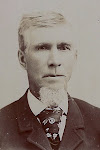History Back Drop: Faith and Political Power
From the late 1600s into the early 1800s, Protestantism was the religion of vast political power in Ireland. This power had wide social implications, including marriage between faiths. While marrying outside of one’s faith was not illegal during this period there were many disincentives for a Protestant to convert to Catholicism and many incentives for Catholics to become Protestant. For example, if a Catholic man owning land died, his property would be equally divided between his surviving sons. That is unless one of the sons was Protestant; in that case the Protestant son would receive all the land! Such draconian rules were called Penal Laws.
Penal laws were strictly enforced for over 140 years from 1689 to 1829. These laws were enacted to extract power from the Roman Catholic majority and came about under the Protestant crown reigns of William and Mary, William III, Anne, and George I and II, each subsequent rulers of the United Kingdom. Penal laws isolated Catholics and Protestants creating separate social classes, giving economic and political advantages to the Protestants. The Penal laws began to be repealed in 1829, but tensions between Catholics and Protestants in Ireland persist to this day.
The Dukelow [Ducklow] families of the 1800s and early 1900s frequently choose the first names of George, Mary, William, Anne and Elizabeth for their children. These names were often selected by the tradition of naming children after a father, mother, grandfather, grandmother, aunt or uncle. It seems unlikely that the first use of these names were just a coincidence in matching names of the ruling royalty. The original choice of these names in the Dukelow family no doubt demonstrated patronage, honor and respect to the crown.
-


No comments:
Post a Comment